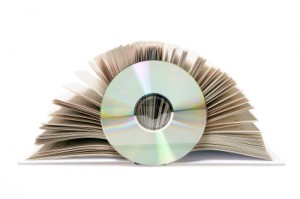“Copyright law has historically protected the right of the creator to exclusively distribute their work. This is important because it gives creators the ability to profit from their creation which incentivizes creativity and promotes “the Progress of Science and useful Arts” as contemplated by the Founders in the Constitution.
“In 1908, a limited exception – known as the “first sale doctrine” – was established to a copyright owner’s exclusive right to distribute his work. This exception allowed consumers to sell physical objects that contained copyrighted material. This is why it is legal to resell books, DVDs and CDs.
“This exception was for physical objects because only one person can own or possess a physical object at one time; they take up space; they are not easy to duplicate; if you were to duplicate them, each unit would have an additional cost; they are typically produced in limited quantities and become scarce over time; they decay with age, and they require effort to transport.
“Some are calling for the “first sale” exception to be expanded and applied to non-physical copyrighted content obtained over the Internet. This strikes us as odd for several reasons. First, the marketplace for content online is innovating, experimenting and changing seemingly daily. For example, there are now more than 100 lawful services in the U.S. for accessing video content on the Internet and over 90 for accessing music. Consumers can access this content in flexible and convenient ways such as streaming, downloads or subscription services, depending on their needs. Physical copies of these same works cannot offer the same convenience and flexibility access. If you want to be able to watch, listen or read on your phone, tablet, or big screen TV, the cloud-based services offer great options. But if being able to sell it after you’ve read it, viewed it or listened to it is important to a consumer, the physical medium is your best bet. This is the power of the marketplace — it finds innovative ways to meet the demands of consumers.
Additionally, when someone sells a hardcopy of a book they’ve read, they no longer have the book. When one sells a digital copy of a movie or song or book, how does a copyright holder know that the original purchaser has erased their copy from their various devices and hard drives and from the cloud? Verifying or enforcing the deletion of those files from all of our devices would be far too invasive for most of us. Few want some verification service looking at all our devices and drives. If that is even feasible, it is clearly not desirable.
“The “first sale” exception makes sense for physical objects, but it does not make sense for intagible content. Many have criticized the creative community for being slow to adjust to the modern digital marketplace. But now some of those same voices are calling for government regulation which would effectively drag our modern modes for distributing books, movies and music back to a 1908 framework that only contemplated physical distribution.
“In the Internet marketplace, we should not rush to impose pre-Internet approaches. The marketplace has incentivized billions of dollars in investment which has led to experimentation and innovation that our parents could hardly have imagined. Trying to shoehorn all this modern technology into a 1908 regulatory approach is a powerful disincentive for future innovations.
“This is why we believe the “first sale” exception should continue to apply, as it was originally connived and intended, only to physical objects that contain copyrighted material. We believe it would be harmful to consumers and creators alike to have the government mandate a one-size fits all rule from 1908 on such an evolving technology as the Internet. We believe the marketplace will continue to provide the best options for consumers as entrepreneurs innovate to meet consumer demands and as consumer wants continue to evolve.”

